Plenary Opening Ceremony
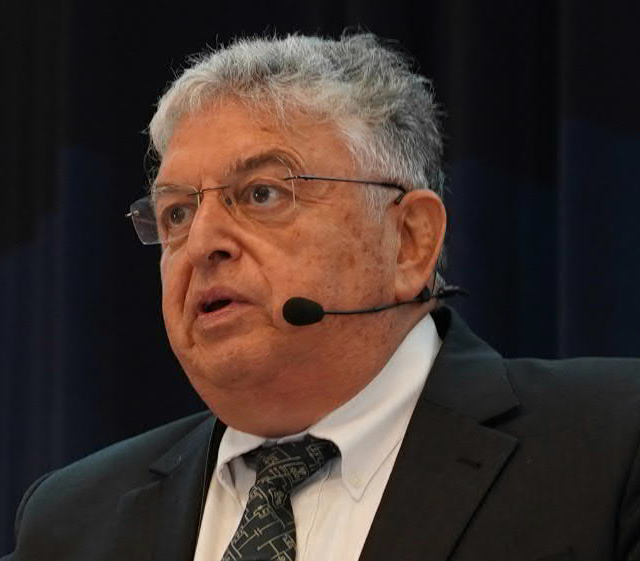
PhD. Mario PacasMario Pacas (SM IEEE) received the Dipl.-Ing. and Dr.-Ing. degrees in electrical engineering from the University of Karlsruhe, Karlsruhe, Germany, in 1978 and 1985, respectively. From 1985 to 1996, he worked for BBC/ABB in Switzerland and Germany in different R&D and management positions with a very wide experience in international projects. In the ABB organization he was responsible for the development of servo drives and later Product Responsible Manager. Since 1996, he has been a Member of the Faculty of Electrical Engineering and Computer Sciences, University of Siegen, Siegen, Germany, where he was also the Head of the Chair for Power Electronics and Electrical Drives and dean of the faculty. Dr. Pacas is presently Vice President for Global Relations of the Power Electronics Society in IEEE responsible for the area of education. He is now Senior Professor at the Chair for Power Electronics and Electrical Drives in the department of Electrical engineering and Computer Science, University of Siegen, Germany and an independent consultant in the area of power electronics, electrical drives and automation. |
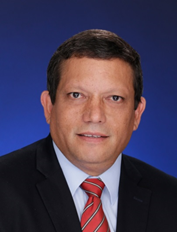
Mgter. Enrique TejeraIn 1981 he received a Bachelor’s Degree in Electromechanical Engineering from the University of Panama and in 1983 a Master’s Degree in Electrical Engineering from the University of Texas at Arlington, TX. During his career he has participated in numerous conferences, technical activities, seminars, and courses. |
- Mario Pacas, University of Siegen, Germany
PLENARY 1: The Digital Transition and its Impact on Engineering (FACE-TO-FACE)
Wednesday 07/09 – 09:40 hs. Eloy Camus – Civic Center - Enrique Tejera, IEEE SM, IEEE Panama Section
PLENARY 2: The impact of Distributed Generation on Transmission and Distribution systems (FACE-TO-FACE)
Wednesday 07/09 – 10:10 hs. Eloy Camus – Civic Center
Aeronautics and Space
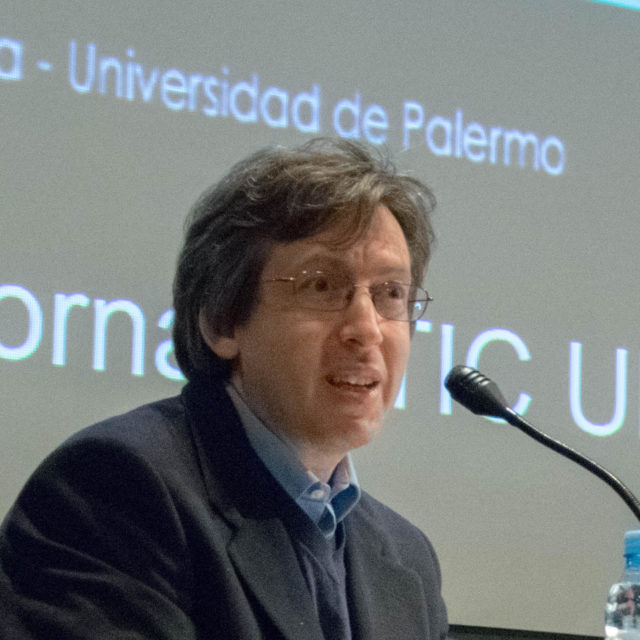
Ing. Alejandro PopovskyDean of the Faculty of Engineering of the University of Palermo. Director of the LABSAT IoT Project. Electronic Engineer (UBA). He has participated in conferences and published various papers in the areas of Neural Networks, VLSI, Performance in IP Networks, and Voice over IP. His research includes Neural Networks in VLSI (UBA), Exponential Calculus (UP), Measurement of Demand and Capacity in IP Networks (UP), Electromagnetic Wave Incidence Angle Detector (UBA). |

PhD. Leonardo RegoliLeonardo Regoli completed his bachelor degree in electronics engineering at the Universidad Central de Venezuela. After working for three years as a research and development engineer at a private company in Caracas, he completed his M.Sc. studies in space science and technology at the Julius-Maximilians Universität Würzburg in Germany and the Luleå Tekniska Universitet in Sweden. After finishing his studies, he worked as a research assistant in the field of computer vision applied to the detection of non-collaborative objects in space. Following that, he completed his PhD studies at the University College London in the UK and the Max Planck Institute for Solar System Research in Germany, studying the interaction of Titan with the Saturnian magnetosphere. After a 3-year postdoc at the University of Michigan studying the interaction of Mars with the solar wind, he joined the Johns Hopkins Applied Physics Laboratory in Maryland, where he actually works as a researcher studying different aspects of magnetospheric interactions with the solar wind, as well as in the development and calibration of particles (electrostatic analyzers and energetic neutral atom cameras) and fields (magnetometers) instruments. |
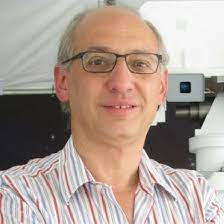
Ing. Miguel San MartínMiguel San Martin was born the 6 th of January of 1959 in his family farm in Villa Regina, Río Negro and he grew up in Bs. As. After finishing his school studies at the Industrial Pío Nono High School, he went to the USA to carry on with his studies and to fulfill his dreams of contributing with the NASA space exploration. He graduated with summa cum laude honors from Syracuse University with the degree of Electronic Engineer and from Massachusetts Institute of Technology with a Master in Aeronautics and Astronautics Engineering. He was recruited at the NASA Jet Propulsion Laboratory which specializes in the robotic planetary exploration where he has been working for 37 years. His field is the Guidance, Navigation and Control |
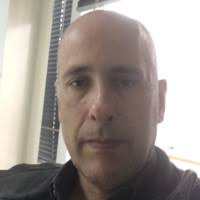
Ing. Gustavo Boadogboado@arsat.com.ar
Technician and engineer in electronics received at FIUBA. In 1995 he was selected along with 10 other engineers from all over the country to be trained in Europe in space systems to integrate the operations engineering group of the first Argentine GEO satellite: the Nahuel 1A. He actively participated in the development of the Arsat 1 and 2 and currently leads the Arsat guidance, navigation and control group. His work includes orbital dynamics, avionics, software, launchers and propulsion. |
- Alejandro Popovsky
Keynote: LABSAT IoT Project
Thursday 08/09 – 15:20 hs. Annex Legislature - Leonardo Regoli, Johns Hopkins Applied Physics Laboratory, Maryland, USA
Keynote: Spacecraft Magnetometry: towards boom-less satellites (FACE-TO-FACE)
Thursday 08/09 – 09:20 hs. Annex Legislature - Miguel San Martín, JPL – NASA, USA
Keynote: Mars sample return mission
Friday 09/09 – 11:10 hs. Annex Legislature - Gustavo Boado, Arsat S.A., Argentina
Keynote: Argentine Space History – GEO Satellites
Wednesday 07/09 – 11:50 hs. Annex Legislature
Automation, Control and Robotics
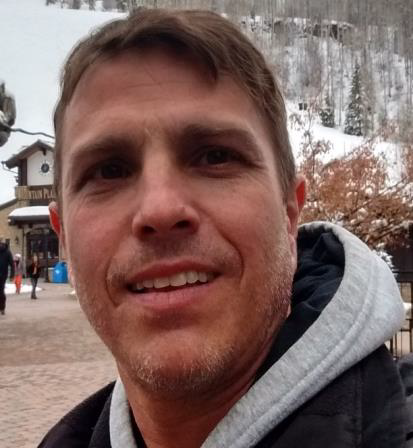
Alfredo E. Lagleyze – CEOEntrepreneur for 20 years. With experience and knowledge of the engineering world in the management of industrial assets. Provides the direction of Products and Services for Industry 4.0 in LATAM. |
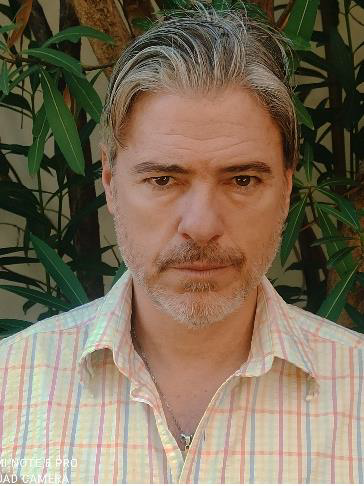
Ing. Mariano SchisterElectrical Engineer, with a degree in Electrical Power Systems and later in Electromechanical Constructions. He has an International Postgraduate Degree in Electricity Markets and Natural Gas and is a Professor with a teaching degree to pursue a career at all levels of teaching. He is a University Professor from 1998 to date, in the chairs of Energy Market and Final Project of several National Universities. He Academic and professional researcher in the sector since 1999, to date. He worked in various multinationals in the electricity generation and manufacturing sector, in the country and abroad, as well as in various energy consulting firms. He managed and directed commercial technical teams throughout his career. He is an independent consultant for different entities in the energy sector, speaking and publishing technological and regulatory content of interest to the sector. He is Operational Director of ItresE for the American continent. |
- Alfredo E. Lagleyze, CEO of the company “Drone AI services”
Keynote: DIGITAL TWINS LiDAR on drone in the electrical industry (FACE-TO-FACE)
Wednesday 07/09 – 16:30 hs. INAUT - Mariano Schister, Operational Director of the company “ItresE”
Keynote: Intelligent design, 3D substations (FACE-TO-FACE)
Wednesday 07/09 – 17:20 hs. INAUT
Bioengineering

PhD. Anselmo FrizeraAnselmo Frizera-Neto holds a bachelor’s degree in Electrical Engineering (2006) from the Federal University of Espirito Santo (UFES, Brazil) and a PhD (2010) in Electronics from the University of Alcalá (UAH, Spain). Between 2006 and 2010, he worked as a pre-doctoral researcher at the Bioengineering Group at the Spanish National Research Council (CSIC, Spain). Since 2010, he has held a permanent position as a Professor of the Electrical Engineering Department at UFES. He acted as the Adjunct Coordinator of the Graduate Program in Electrical Engineering for two terms. From 2014 to 2018, he served as a Member of the Board of Asociación Iberoamericana de Tecnologías de Apoyo a la Discapacidad (AITADIS), contributing to support the dissemination of knowledge in the area of assistive technologies in countries of Latin America and the Iberian Peninsula. Currently, he is the Coordinator of the Brazilian Research Group on Brain and Cognitive Engineering (BRAEN), a multidisciplinary group of experts in Engineering, Medicine and Psychology that aim at modeling and studying the human brain. In his career as a researcher, Prof. Frizera-Neto has published more than 300 scientific articles, of which more than 140 are publications in international scientific journals. He worked in the training of masters and doctors in institutions in Brazil, Argentina, Italy, and Portugal. He has experience in Electronics, Photonics and Biomedical Engineering. His research interests and areas of expertise are rehabilitation robotics for assisting cognitive and motor impairments, development of optical and electronic sensors for human-machine interfaces, biomedical signal processing and smart textiles. |
- Anselmo Frizera, Department of Electrical Engineering – Federal University of Espírito Santo, Brazil
Keynote: Advanced human-robot interaction strategies for walker-assisted gait (FACE-TO-FACE)
Friday 09/09 – 11:10 hs. Legislature
Circuits and Systems, Electronic Devices, and Microelectronics
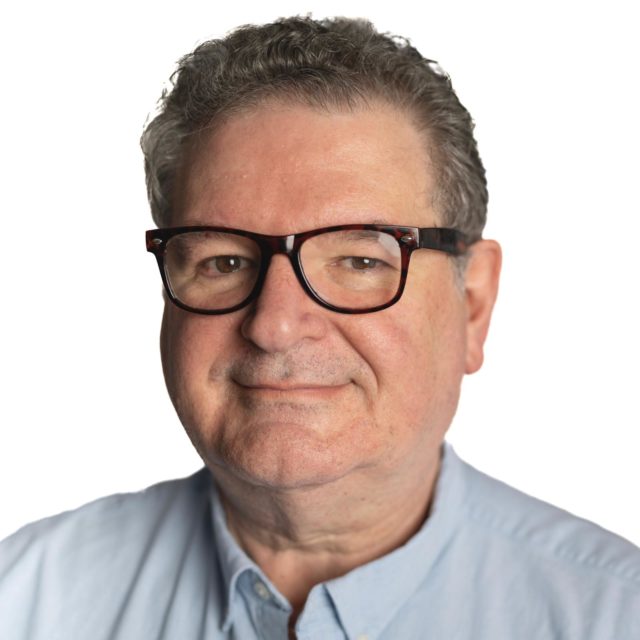
PhD. Ricardo ReisRicardo Reis has a degree in Electronic Engineering from the Federal University of Rio Grande do Sul (UFRGS), Porto Alegre, Brazil (1978). He has a Ph.D. in Computer Science, Microelectronics option, from the National Polytechnic Institute of Grenoble (INPG), France (1983). He received an honorary doctorate from the University of Montpellier in 2016. He is a professor at the Informatics Institute of UFRGS. His main research topics include physical chip design automation, design methodologies, and designs for low-power and fault-tolerant systems. He has more than 750 publications, including books, magazines and conference proceedings. He was vice president of the IFIP (International Federation of Information Processing) and also president of the Brazilian Society of Informatics (two terms) and vice president of the Brazilian Society of Microelectronics. He is a senior member of IEEE CASS and received the “2015 IEEE CASS Meririous Service Award” 2015. He was Vice President of IEEE CASS for two terms (2008/2011). He is the founder of the Rio CASS Chapter |
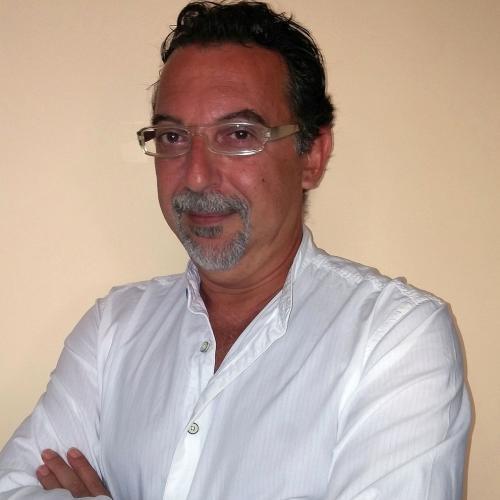
PhD. Manuel Delgado-RestitutoManuel Delgado-Restituto received the Ph.D. degree in Electronic Physics (Honors) from the University of Seville, Spain, in 1996. Since then, he has been working with the Institute of Microelectronics of Seville (IMSE-Univ. of Sevilla) where he currently heads a research group on low-power medical microelectronics and works in the design of silicon and optoelectronic microsystems for understanding biological neural systems, the development of neural prostheses and brain-machine interfaces, the implementation of wireless body area network transceivers and the realization of RFID transponders with biomedical sensing capabilities. |
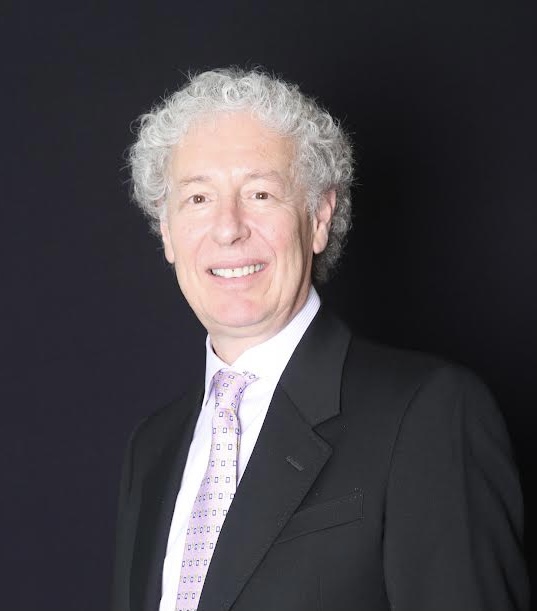
PhD. Victor GrimblattVictor Grimblatt has an engineering diploma in microelectronics from Institut Nationale Polytechnique de Grenoble (INPG – France) and an electronic engineering diploma from Universidad Tecnica Federico Santa Maria (Chile). He got a PhD on Electronics University of Bordeaux.. He is currently R&D Group Director and General Manager of Synopsys Chile, leader in Electronic Design Automation (EDA). He opened the Synopsys Chile R&D Center in 2006. He has expertise and knowledge in |
- Ricardo Reis, Universidade Federal do Rio Grande do Sul – Brazil, Coordinator of CASS in R9
Keynote: Traveling inside a chip (FACE-TO-FACE)
Thursday 08/09 – 09:00 hs. INAUT - Manuel Delgado-Restituto, US-CSIC and president of IEEE CASS, Spain
Keynote: Neural recording with high-channel count microelectrode arrays (FACE-TO-FACE)
Thursday 08/09 – 14:20 hs. INAUT - Victor Grimblatt, R&D Group Director and General Manager, Synopsys, Chile
Keynote: Thinking Outside the CMOS Box (FACE-TO-FACE)
Thursday 08/09 – 11:10 hs. INAUT
Communications
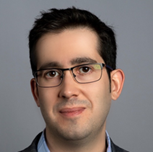
PhD. Josep M. JornetJosep M. Jornet is a professor in the department of electrical and computer engineering, director of the Ultrabroadband Nanonetworking Laboratory (UN Lab), and a member of the Institute for the Wireless Internet of Things and the SMART Center at Northeastern University. He obtained a degree in telecommunications engineering and a master’s degree in information and communication sciences from the Polytechnic University of Catalonia, in Barcelona, Spain, in 2008. He obtained a doctorate in electrical and computer engineering from the Georgia Institute of Technology. , in 2013. His areas of interest include terahertz communications, nano-bio communications networks, and the Internet of Nano-Things. In these fields, he has published more than 180 articles, one book, and also holds four patents. All of these accumulate more than 12,000 citations (h-index of 50). He is the director of multiple projects at the US National Science Foundation, the US Air Force Office of Scientific Research, and the US Air Force Research Laboratory. He is the Editor-in-Chief of Elsevier Nano Communication Networks and an Editor for IEEE Transactions on Communications. He is on the steering committee for the IEEE International Workshop on Terahertz Communications (this year alongside ICC 2022 and Globecom 2022), and also on the ACM NanoCom conference series. He has received multiple awards, including the NSF CAREER Award, multiple conference paper awards, and other awards from the IEEE, ACM, Georgia Tech, UB, and Northeastern University. He is a Senior Fellow of the IEEE and a Distinguished Lecturer for the IEEE Communications Society. |
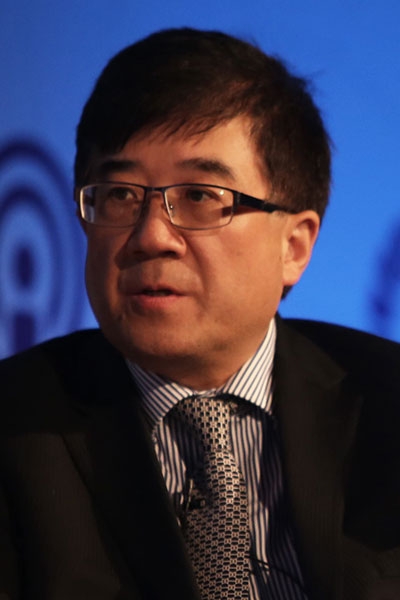
PhD. Wen TongDr. Wen Tong is the CTO, Huawei Wireless. He is the head of Huawei wireless research. In 2011, Dr. Tong was appointed the Head of Communications Technologies Labs of Huawei, currently, he is the Huawei 5G chief scientist and leads Huawei’s 10-year-long 5G wireless technologies research and development. Prior to joining Huawei in 2009, Dr. Tong was the Nortel Fellow and head of the Network Technology Labs at Nortel. He joined the Wireless Technology Labs at Bell Northern Research in 1995 in Canada. Dr. Tong is the industry recognized leader in invention of advanced wireless technologies, he is the key contributor to 3GPP since its inception. Dr. Tong was elected as a Huawei Fellow and an IEEE Fellow. He was the recipient of IEEE Communications Society Industry Innovation Award for “the leadership and contributions in development of 3G and 4G wireless systems” in 2014, and IEEE Communications Society Distinguished Industry Leader Award for “pioneering technical contributions and leadership in the mobile communications industry and innovation in 5G mobile communications technology” in 2018. He is also the recipient of R.A. Fessenden Medal. For the past three decades, he had pioneered fundamental technologies from 1G to 6G wireless and Wi-Fi with more than 520 awarded US patents. Dr. Tong is a Fellow of Canadian Academy of Engineering, and he serves as Board of Director of Wi-Fi Alliance. He is the committee member for “IEEE Fellow Committee” and “The IEEE Corporate Innovation Award”. |
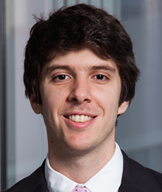
PhD. Santiago SegarraSantiago Segarra received the B.Sc. degree in Industrial Engineering with highest honors (Valedictorian) from the Instituto Tecnológico de Buenos Aires (ITBA), Argentina, in 2011, the M.Sc. in Electrical Engineering from the University of Pennsylvania (Penn), Philadelphia, in 2014 and the Ph.D. degree in Electrical and Systems Engineering from Penn in 2016. From September 2016 to June 2018 he was a postdoctoral research associate with the Institute for Data, Systems, and Society at the Massachusetts Institute of Technology. Since July 2018, Dr. Segarra is a W. M. Rice Trustee Assistant Professor in the Department of Electrical and Computer Engineering at Rice University. His research interests include network theory, data analysis, machine learning, and graph signal processing. Dr. Segarra received the ITBA’s 2011 Best Undergraduate Thesis Award in Industrial Engineering, the 2011 Outstanding Graduate Award granted by the National Academy of Engineering of Argentina, the 2017 Penn’s Joseph and Rosaline Wolf Award for Best Doctoral Dissertation in Electrical and Systems Engineering, the 2020 IEEE Signal Processing Society Young Author Best Paper Award, the 2021 Rice’s School of Engineering Research + Teaching Excellence Award, and five best conference paper awards. |
- Josep Miquel Jornet, Northeastern University, Boston, EEUU
Keynote: Conquering the Terahertz Band for 6G Systems: From Theory to Practice
Friday 09/09 – 09:40 hs. Classroom 2 – IEE - Wen Tong, Ottawa Research Center, Huawei Technologies, Ottawa, Canada
Keynote: Non-Terrestrial Massive-Satellite Communications Networks
Friday 09/09 – 15:20 hs. Classroom 2 – IEE - Santiago Segarra, Rice University, EE.UU.
Keynote: Neural networks in graphs with applications to wireless networks
Friday 09/09 – 14:20 hs. Classroom 2 – IEE
Computer Systems and High-performance Computing
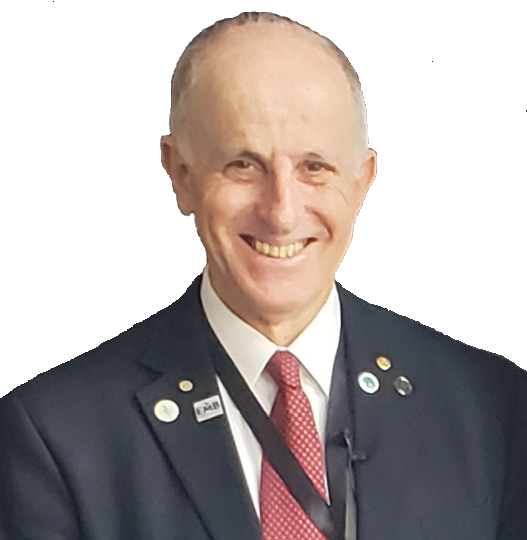
PhD. Luis KunDr. Luis Kun is the 2022 IEEE President Elect for the Society for Social Implications of Technology and a Distinguished Professor Emeritus of National Security (CHDS/NDU). Born in Montevideo, he graduated from the Merchant Marine Academy in Uruguay and holds a BSEE, MSEE, and PhD degree in BME, all from UCLA. He is an IEEE Life Fellow, a Fellow of the |
- Luis Kun
Keynote: The High Performance Computers & Communications Program and the Social Implications of Technology during COVID-19
Thursday 08/09 – 09:00 hs. Classroom 1 – Electromechanical
Keynote: Using Biosurveillance and Public Health Informatics to Transform Healthcare
Thursday 08/09 – 09:50 hs. Classroom 1 – Electromechanical
Computational Intelligence
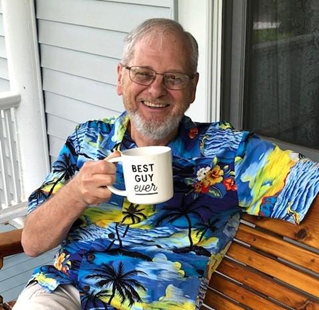
PhD. James M. KellerJames M. Keller received the Ph.D. in Mathematics in 1978. He is now the Curators’ Distinguished Professor Emeritus in the Electrical Engineering and Computer Science Department at the University of Missouri. Jim is an Honorary Professor at the University of Nottingham. His research interests center on computational intelligence: fuzzy set theory and fuzzy logic, neural networks, and evolutionary computation with a focus on problems in computer vision, pattern recognition, and information fusion including bioinformatics, spatial reasoning in robotics, geospatial intelligence, sensor and information analysis in technology for eldercare, and landmine detection. His industrial and government funding sources include the Electronics and Space Corporation, Union Electric, Geo-Centers, National Science Foundation, the Administration on Aging, The National Institutes of Health, NASA/JSC, the Air Force Office of Scientific Research, the Army Research Office, the Office of Naval Research, the National Geospatial Intelligence Agency, the U.S. Army Engineer Research and Development Center, the Leonard Wood Institute, and the Army Night Vision and Electronic Sensors Directorate. Professor Keller has coauthored over 500 technical publications. |

PhD. Santiago SegarraSantiago Segarra received the B.Sc. degree in Industrial Engineering with highest honors (Valedictorian) from the Instituto Tecnológico de Buenos Aires (ITBA), Argentina, in 2011, the M.Sc. in Electrical Engineering from the University of Pennsylvania (Penn), Philadelphia, in 2014 and the Ph.D. degree in Electrical and Systems Engineering from Penn in 2016. From September 2016 to June 2018 he was a postdoctoral research associate with the Institute for Data, Systems, and Society at the Massachusetts Institute of Technology. Since July 2018, Dr. Segarra is a W. M. Rice Trustee Assistant Professor in the Department of Electrical and Computer Engineering at Rice University. His research interests include network theory, data analysis, machine learning, and graph signal processing. Dr. Segarra received the ITBA’s 2011 Best Undergraduate Thesis Award in Industrial Engineering, the 2011 Outstanding Graduate Award granted by the National Academy of Engineering of Argentina, the 2017 Penn’s Joseph and Rosaline Wolf Award for Best Doctoral Dissertation in Electrical and Systems Engineering, the 2020 IEEE Signal Processing Society Young Author Best Paper Award, the 2021 Rice’s School of Engineering Research + Teaching Excellence Award, and five best conference paper awards. |

Dr. Daniela Lopéz De Luisemdldl.ci2s@gmail.com
Dr. Daniela Lopéz De LuiseDaniela López De Luise has a degree in Systems Analysis from the Faculty of Engineering of the University of Buenos Aires (1989), then continued her training in the intelligent systems sector obtaining the title of Specialist in Expert Systems Engineering from the Technological Institute of Buenos Aires (2000). In 2008 she received the title of Doctor in Computer Science from the National University of La Plata. She finally acquires the title of Public Communicator of Science and Technology granted jointly by the Faculty of Exact Sciences, Sociology and Philosophy and Letters of the University of Buenos Aires (2022).
His professional career begins in intelligent systems, and expands to other related topics, having collaborated for large national and international firms. He gradually incorporates scientific and academic activities, leading the Computational Intelligence & Information Systems Labs (since 2013) and the IDTI Lab of the Faculty of Science and Technology at the Autonomous University of Entre Rios. She also participates as a teacher and researcher in various educational entities. She is currently the academic coordinator of the Center for Studies in Intelligent Technologies of the National Academy of Sciences of Buenos Aires. She has been founder and steering committee of several networks and laboratories. She founded, was the first president and currently continues to belong to the staff of the IEEE Computational Intelligence Society of Argentina (IEEE’s first world chapter on these issues), was president of IEEE Argentina, founder and managing partner of Enterpriseware S.R.L., founder and leader of IEEE Women in Computational Intelligence, and actively belongs to the Matilda Latin American Chair for Women in Science. She has several national and international awards to her credit, including the SADOSDY award and the IEEE R9 Latin American Eminent Engineer award. She currently coordinates the IEEE Games Technical Committee in Argentina, and the Video Game Development and Production Network (Latin American international consortium). He also chairs some diploma courses and coordinates projects related to linguistic reasoning, chatterbots, and Morphosyntactic Wavelets. His personal research work focuses on the formalization of a thermodynamics that regulates languages. He performs consulting tasks for several national and international companies. His base research area is the automatic generation of language and its mathematical relationship with natural speech. |
- James Keller, University of Missouri, EE.UU.
Keynote: Streaming Data Analytics: Clustering or Classification
Wednesday 07/09 – 15:00 hs. Multimedia Classroom – Electromechanical - Santiago Segarra, Rice University, EE.UU.
Keynote: Neural networks in graphs with applications to wireless networks
Friday 09/09 – 14:20 hs. Classroom 2 – IEE - Daniela López De Luise, National Technological University, Argentina
Keynote: Aspects of reasoning from computational linguistics
Thursday 08/09 – 11:10 hs. Multimedia Classroom – Electromechanical
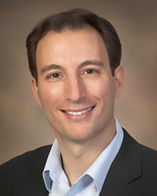
PhD. Ricardo SanfeliceRicardo G. Sanfelice is Professor of Electrical and Computer Engineering, University of California at Santa Cruz, CA, USA. He received his M.S. and Ph.D. degrees in 2004 and 2007, respectively, from the University of California, Santa Barbara. During 2007 and 2008, he was a Postdoctoral Associate at the Laboratory for Information and Decision Systems at the Massachusetts Institute of Technology and visited the Centre Automatique et Systemes at the Ecole de Mines de Paris for four months. Prof. Sanfelice is the recipient of the 2013 SIAM Control and Systems Theory Prize, the National Science Foundation CAREER award, the Air Force Young Investigator Research Award, the 2010 IEEE Control Systems Magazine Outstanding Paper Award, the 2012 STAR Higher Education Award for his contributions to STEM education, and the 2020 ACM Test-of-Time Award from the HSCC. He is Associate Editor for Automatica, a Fellow of the IEEE, and has served as Chair of the Hybrid Systems Technical Committee from the IEEE Control Systems Society. He is Director of the Cyber-Physical Systems Research Center at UCSC and Director of the Center for Information Technology Research in the Interest of Society and the Banatao Institute (CITRIS) Aviation Initiative. His research interests are in modeling, stability, robust control, observer design, and simulation of nonlinear and hybrid systems with applications to robotics, power systems, aerospace, and biology. |
- Ricardo Sanfelice, University of California, Santa Cruz-USA
Keynote: Models, Tools, and Applications of Cyber-Physical Systems
Thursday 08/09 – 12:10 hs. Multimedia Classroom – Electromechanical
Cyber Security and Ciber Defense

Fabian DescalzoPartner of the Cybersecurity, Technological Governance and Digital Risk Advisory Services practice of BDO in Argentina, in the area of Computer Process Assurance with 30 years of experience in the area of management and implementation of Information Security Governance, IT Governance , Compliance and IT Audit in Argentina and Latin America, and advice for compliance with National and International Laws and Regulations in top-tier companies in different business areas. Professor of the University Diploma in Accounting Tech of the BIG DATA AND CLOUD SERVICES module at the Universidad Argentina de la Empresa (UADE), Professor of module 27001 of the Diplomas in “IT Governance, Efficient Use of Frameworks” and “Government and Management of IT Services” of the Buenos Aires Technological Institute (ITBA), Professor of the IT Audit Module of the Diploma in Computer Crimes for EDI at the National University of Río Negro and Professor of IT Management Systems, Information Security and IT Audit for TÜV Rheinland. International speaker and columnist on topics related to technological governance, information security, cybersecurity, data protection regulations and legislation, business continuity, etc. Member of the Steering Committee and President of the Education Commission of the ISACA Buenos Aires Chapter, Member of the Latin American Privacy Association, Member of the Argentine Association of Ethics and Compliance, Member of the Academic Committee of the “Cyber Security for Critical Assets LATAM” for Qatalys Global Critical Infrastructure section, Member of the Scientific Committee of the IEEE (Institute of Electrical and Electronics Engineers |
- Fabian Descalzo, Partner of the Cybersecurity, Technology Governance and Digital Risk Advisory Services practice of BDO, Argentina
Keynote: Quality assurance from cybersecurity
Thursday 08/09 – 15:20 hs. Classroom 2 – IEE
Diversity and Inclusion in Ingineering
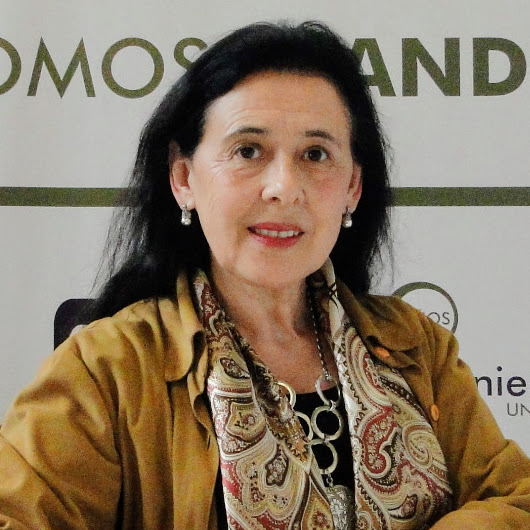
PhD. Silvia García de CajenDoctor from Universidade de Santiago de Compostela (USC – Spain). Electromechanical Engineer from Universidad Nacional del Centro de la Provincia de Buenos Aires (UNICEN – Argentina). Labor Engineer from Universidad Tecnológica Nacional, Regional Pacheco (UTN – Argentina). Specialist in the Teaching of Experimental Sciences. Former Director of the Technological Institute of Higher Education. Full-time Professor and Researcher at UNICEN’s Faculty of Engineering. Director of the PICTO-GENDER Project called "Good Practices for the mainstreaming of the gender perspective in public policies, with an impact on engineering training" in a jointed network of the Faculties of Engineering run by UNICEN, Universidad Nacional de Misiones (UNaM), Universidad Fraternidad de Agrupaciones Santo Tomás de Aquino (FASTA), and Universidad Abierta Interamericana (UAI). Co-founder of the ‘Women in Engineering Group’ (MIFIO) at UNICEN. Referent Member of the Faculty of Engineering of UNICEN in the Commission of Women, Gender and Diversity of the Federal Council of Deans of Engineering (CONFEDI). Coordinator of the Research Committee for the ‘Matilda and Women in Engineering Latin American Open Cathedra’. Author of books, book chapters, and national and international publications. |
- Silvia García De Cajen, National University of the Center of the Province of Buenos Aires, Bs.As., Argentina
Keynote: Strategic plan to mainstream the Faculties of Engineering with a gender perspective (FACE-TO-FACE)
Thursday 08/09 – 11:10 hs. Classroom 1 – IEE
Education

PhD. Mario PacasMario Pacas (SM IEEE) received the Dipl.-Ing. and Dr.-Ing. degrees in electrical engineering from the University of Karlsruhe, Karlsruhe, Germany, in 1978 and 1985, respectively. From 1985 to 1996, he worked for BBC/ABB in Switzerland and Germany in different R&D and management positions with a very wide experience in international projects. In the ABB organization he was responsible for the development of servo drives and later Product Responsible Manager. Since 1996, he has been a Member of the Faculty of Electrical Engineering and Computer Sciences, University of Siegen, Siegen, Germany, where he was also the Head of the Chair for Power Electronics and Electrical Drives and dean of the faculty. Dr. Pacas is presently Vice President for Global Relations of the Power Electronics Society in IEEE responsible for the area of education. He is now Senior Professor at the Chair for Power Electronics and Electrical Drives in the department of Electrical engineering and Computer Science, University of Siegen, Germany and an independent consultant in the area of power electronics, electrical drives and automation. |
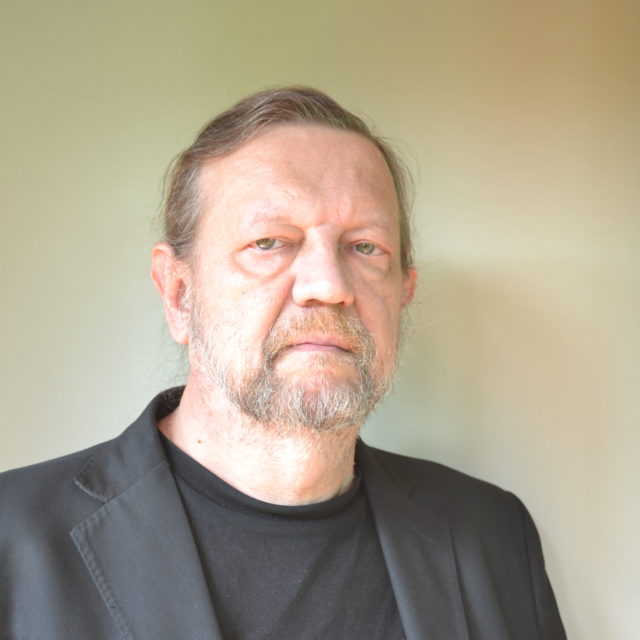
Mgter. Víctor Andrés KowalskiElectromechanical engineer. Master in Production Engineering. International Engineering Educator. Director of the MECEK Educational Laboratory of the Faculty of Engineering of the National University of Misiones (FI UNaM). Professor and Researcher at FI UNAM. Academic Director of Postgraduate courses in the area of Training and Assessment of Competencies within a Student-Centered Model” FI UNaM. Master Lecturer Training by Competencies area in various events in Argentina, Chile and Brazil. |
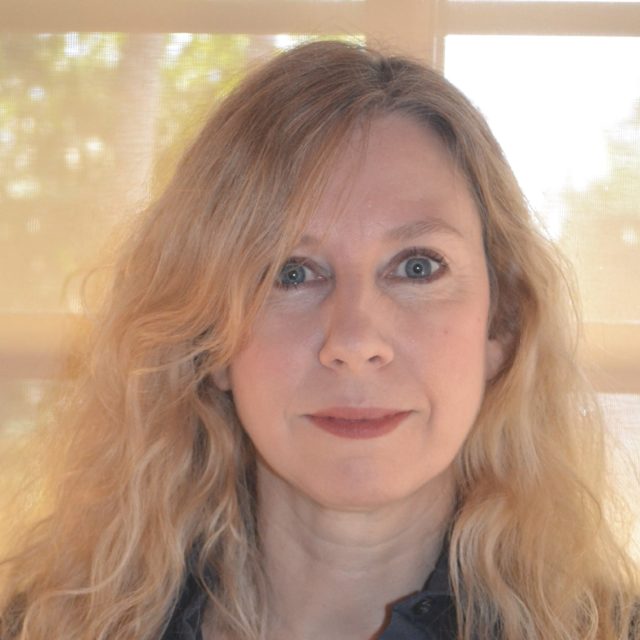
Ing. Isolda Mercedes ErckElectrical Engineer. Specialist in Production and Environment Management. Deputy Director of the MECEK Educational Laboratory of the Faculty of Engineering of the National University of Misiones (FI UNaM). Teacher and Researcher at FI UNAM. Academic Director of the Postgraduate course “Training and Evaluation of Competencies within a Hybrid and Student-Centered Model” FI UNaM. Institutional representative in the Commission “Women, Gender and Diversity in Engineering” of CONFEDI. Member of the Research Committee in the Latin American Open Chair “Matilda and Women in Engineering”. |
- Mario Pacas, University of Siegen, Germany
Keynote: (FACE-TO-FACE)
Thursday 08/09 – 11:10 hs. Postgraduate Classroom, Ground Floor – IEE - Víctor Andrés Kowalski and Isolda Mercedes Erck, Faculty of Engineering of the National University of Misiones (FI UNaM), Argentina
Keynote: Assurance of the formation of Generic Competences in engineering careers
Thursday 08/09 – 09:00 hs. Postgraduate Classroom, Ground Floor – IEE
Electromagnetic Compatibility, Antennas and Propagation
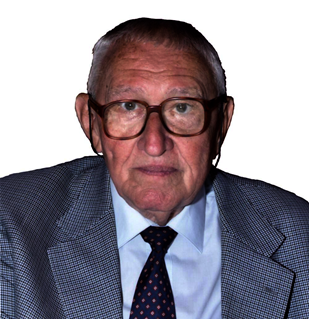
PhD. Valentino TrainottiValentino Trainotti was born in Trento, Italy, in January 1935. He obtained the degree of Electronics engineer at the Universidad Tecnolócgica Nacional, Buenos Aires, Argentina in 1963. His post-grade studies were on Antennas Measurements at the California State University in 1981and Diffraction Geometric Theory and Radar Sign at the Ohio State University in 1985. He has worked from 1953 to 1963 as Electronic technician at Mitre Radio Broadcaster LR6 and from 1963 to 2003 at Citefa at the Defense Ministry of Argentina as Chief Engineer of the Antennas and Radiation Division. Has been distinguished with the grade of IEEE Life fellow in 2010 and he is Member of the Administrative committee of the Broadcast Technology Society of the IEEE from 1999 to 2006 and from 2010 to 2015. He has founded and presided the Argentine Chapter of broadcast technology as Secretary of the IEEE Electromagnetic Compatibility. Besides, he was named secretary of the Argentine Section of the B Commission of URSI. He was distinguished by the IEEE 9 Region as Eminent Engineer in 1993. He received from the IEEE Broadcast Technology Society the prestigious Jules Cohen Award in December 2021. |
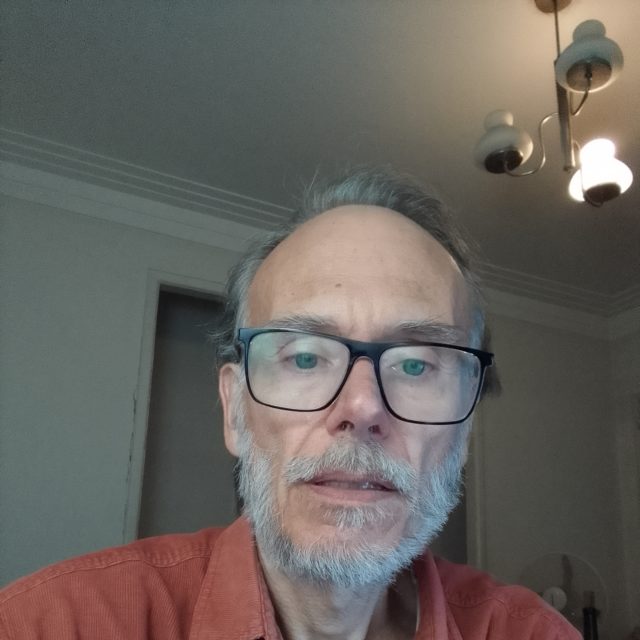
PhD. Walter Gustavo Fanogustavo.fano@ieee.org
Dr. Ing. Walter Gustavo FanoHe is a professor at the Faculty of Engineering, University of Buenos Aires (FIUBA), director of the FIUBA Electromagnetic Radiation Laboratory (LRAD), and subdirectory of the Optoelectronic Engineering Specialization Course. 2020, FIUBA and president of 3 International Conferences on Electromagnetic Compatibility and Antennas of IEEE and FIUBA.
He graduated as Electronic Technician, ENET 28 French Republic. Electronic Engineer and Ph.D. in FIUBA Engineering. He received a scholarship as a student at Contel Computadores y Sistemas and at FIUBA. He was a professor at the National University of Patagonia San Juan Bosco (UNPSJB), Technological Institute of BsAs (ITBA), and the Higher Technical School (EST). He published 3 Books on Electromagnetic Engineering Editorial Nueva Librería, 4 chapters of Books on Electromagnetic Compatibility EUDEBA (in press), and 3 chapters of books for INTECHOPEN www.intechopen.com/. He published numerous technical articles in magazines and conferences and edited two books for EUDEBA and INTECHOPEN. He is an evaluator for MINCyT, FONTAR, FIUBA, UCA, and national and international journals SciTech Publishing, Progress in Electromagnetic and Research from MIT, Elektron, IEEE, PIER, AFA, and others. |

Marisabel RodriguezMarisabel Rodriguez is Electronics Engineer and IEEE Senior Member. She worked in Data Centers´ infrastructure for more than 20 years and in television systems for 10 years. She is a specialist on The Cloud. Nowadays, she is a member of the AdCom of Broadcast Technology Society and she is a representative at the Committee of Inclusion and Diversity. |
- Valentino Trainotti, Argentina
Keynote: Characteristics of receiving antennas and their calibration (FACE-TO-FACE)
Friday 09/09 – 11:10 hs. Classroom 1 – Electromechanical - Walter Gustavo Fano, University of Buenos Aires, Argentina
Keynote: Near field and wave impedance, related to electromagnetic compatibility applications (FACE-TO-FACE)
Friday 09/09 – 14:20 hs. Classroom 1 – Electromechanical - Marisabel Rodriguez, Argentina
Keynote: Video streaming from the cloud (FACE-TO-FACE)
Friday 09/09 – 16:30 hs. Classroom 1 – Electromechanical
Ethics in Engineering

Ing. Laureano CorreaLaureano Correa is a chemical engineer and a graduate in philosophy, professor of bioethics and ethics assistant at the UNS. He also works as a teacher in the “International Certification Program for Engineering Educators” of the InnovaHiEd-IGIP Institute. He has presented several papers at conferences and conferences, and has published the chapter “Avatars of morality: Nietzsche-Deleuze” in the book “Crisis of Metaphysics. Nihilism and overcoming”. He is a member of the Center for Bioethical Research of the Department of Humanities of the National University of the South, Bahía Blanca, and of the Center for Studies in Philosophy of Culture of the Department of Humanities of the National University of Comahue, Neuquén. His current research concerns mainly ethics, the philosophy of culture and the philosophy of technology. |
- Laureano Correa, InnovaHiEd-IGIP Institute
Keynote: Ethics in Engineering Education
Friday 09/09 – 14:20 hs. Multimedia Classroom – Electromechanical
Geoscience and Remote Sensing

PhD. Laura FrullaLaura Frulla has a doctorate in Physical Sciences the National University of Buenos Aires. She specialized in the studies of the physical processes generated in satellite measurements and satellite instruments calibration. She has more than 30 years of experience in the area of remote sensing, image processing and information extraction. She currently works as Earth Observation Manager at the National Commission for Space Activities (CONAE) and is the Principal Investigator of the SAOCOM 1 Mission (CONAE’s SAR mission). |
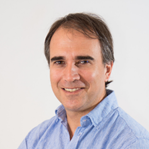
Msc. Luciano GiessoLuciano Giesso works as International Sales Director at Satellogic. He is a multinational executive with more than 25 years of experience in technology and services, of Argentine origin and with several years living in the United States for different periods. He has led teams of over 100 people in multiple countries, holding management, sales, and operations positions at various technology companies, including 14 years at IBM. Fluent in English, Spanish, French, Portuguese and German, Luciano is an Industrial Engineer from UCA and has an MBA from Universidad de San Andrés, both in Buenos Aires, Argentina. He has also completed executive programs at Harvard Business School and MIT Sloan School of Management. |
- Laura Frulla, Manager of Earth Observation. SAOCOM, National Commission for Space Activities (CONAE), Argentina
Keynote: The SAOCOM 1 constellation and its contributions to the national socio-productive axis
Wednesday 07/09 – 16:30 hs. Legislature - Luciano Giesso, International Sales Director at Satellogic, EEUU
Keynote: Satellogic: $SATL, the new public stage
Friday 09/09 – 09:20 hs. Annex Legislature
Industrial Applications and Power Electronics
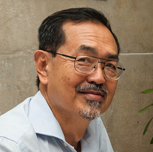
PhD. Edson H. WatanabeEdson H. Watanabe got the Electronic Engineer (1975) degree from the Polytechnic School and Master of Science degree in Electrical Engineering (1976) from Coppe, both at the Federal University of Rio de Janeiro (UFRJ) and got the Doctor of Engineering (D. Eng.) from Tokyo Institute of Technology, (1981). He is now a professor at the Electrical Engineering Program, Coppe/UFRJ. His field of interests are Power Electronics Applications to Power Systems, including integration of renewable sources to the grid, Electric Energy Quality, HVDC and FACTS. He is the coauthor of the book “Instantaneous Power Theory and Applications to Power Conditioners”, published by IEEE Press / John Wiley in 2017. He is a member of the Brazilian Academy of Sciences, National Academy of Engineering (Brazil), IEE-Japan, Brazilian Society of Automatic Control, Brazilian Power Electronics Society, CIGRE and PELS, IAS, IES and PES at IEEE. In 2013, he received the IEEE PES Nari Hingorani FACTS Award, he is Life Fellow of IEEE since 2018 and was admitted to the National (Brazil) Order of Scientific Merit, in the class of “Comendador”, in 2005. In 2020 he was decorated by the Emperor of Japan with “The Order of the Rising Sun, Gold Rays with Neck Ribbon. |

Ing. Pía Torrespia.Torres@ieee.org
Ing. Pía TorresElectronic Engineer from the Faculty of Exact Sciences and Technology of the National University of Tucumán. PMI®- PMP Project Management Professional Certification.
Postgraduate in Management of Social Organizations – School of Politics and Government of the Faculty of Social Sciences, Universidad Católica Argentina (UCA). Specialist in Project Management, Innovation, and Sustainability in various industries. Sr. Project Manager at Globant. University Professor at the Faculty of Engineering and Exact and Natural Sciences of Favaloro University Social Entrepreneur in Education and Humanitarian Technology – Co-Founder and Program Manager of Roboteam – Co-founder of Growtec: Technology for Sustainable Development Consultant in STEM Education, Diversity and Inclusion, Social Engineering, Innovation, and Sustainable Development. The promoter of the UN Sustainable Development Goals IEEE Industry Applications Society Board Member – Diversity & Inclusion Chair IEEE Humanitarian Activities Committee Member – Project Monitoring Chair IEEE Region 9 Humanitarian Activities Committee Chair President of the Joint Chapter #1 (IE13/CS23/RA24/IA34/PEL35/VT06 of the Argentine Section of the IEEE since 2021. IEEE Women in Engineering Inspiring Member Award JCI TOYP Outstanding Youth of Argentina Vice-Chairman of the Fundación FLOR Technology Committee President – PMI Buenos Aires Women’s Leadership Community of Interest. |
- Edson H. Watanabe, Federal University of Rio de Janeiro, Brazil
Keynote: High Voltage DC and Flexible Alternating Current Transmission System (FACE-TO-FACE)
Friday 09/09 – 11:10 hs. Conference Room – IEE - Pía Torres, Faculty of Engineering and Exact and Natural Sciences of Favaloro University, Argentina
Keynote: Technology for sustainable development (FACE-TO-FACE)
Keynote: Technology, Education and Diversity: Inspiring the leaders of the future (FACE-TO-FACE)
Thursday 08/09 – 16:30 hs. Classroom 1 – Electromechanical
Instrumentation and Measurement
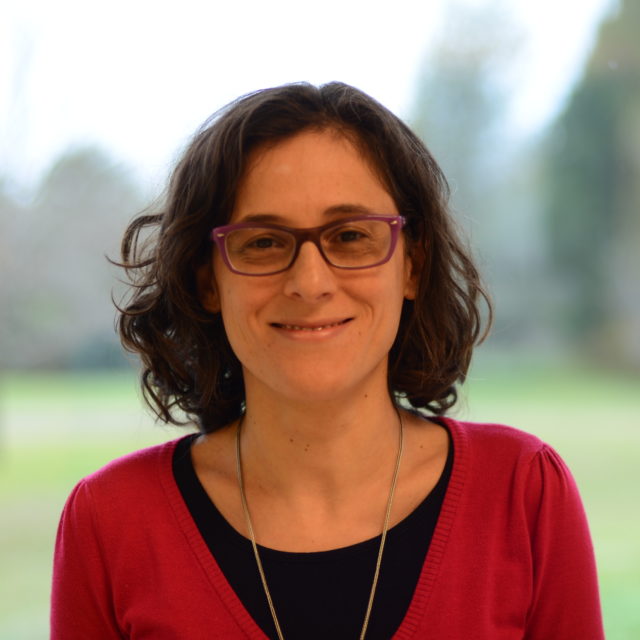
PhD. Carolina B. TauroCarolina B. Tauro is Principal Investigator of the SABIA-Mar mission at the National Commission for Space Activities. |
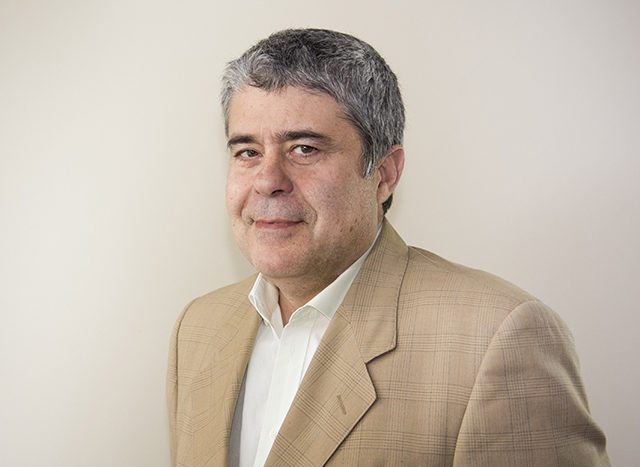
PhD. Hector LaizHéctor Laiz received a degree in electrical engineering from the University of Buenos Aires in 1988 and a Doctorate from the Technische Universität Braunschweig, Germany, in 1999. In 1989, he joined INTI, the National Metrology of Argentina, where where he carried out research and development in electrical metrology. He was a guest scientist at PTB, Germany, and at NIST, USA. He published more than 50 peer-reviewed papers in international journals and international conferences. |
- Carolina B. Tauro, Mario Gulich Institute (CONAE-UNC), Argentina
Keynote: SABIA-Mar satellite mission: a look at our seas and coasts (FACE-TO-FACE)
Thursday 08/09 – 11:10 hs. Conference Room – IEE - Hector Laiz, National Institute of Industrial Technology, Argentina
Keynote: International system of units for digital transformation (FACE-TO-FACE)
Wednesday 07/09 – 16:30 hs. Classroom 1 – Electromechanical
Power and Energy
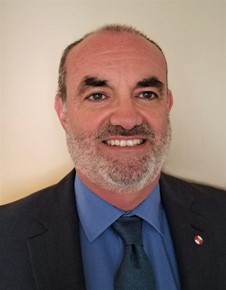
Claudio CañizaresClaudio CañizaresDr. Claudio Cañizares is a University Professor and the Hydro One Endowed Chair at the Electrical and Computer Engineering (E&CE) Department, and the Executive Director of the Waterloo Institute for Sustainable Energy (WISE) at the University of Waterloo, where he has held various academic and administrative positions since 1993 and has received multiple recognitions, especially the 2021-2022 Awards of Excellence in Graduate Supervision at both the University and Faculty of Engineering levels. He obtained the Electrical Engineer degree from the Escuela Politécnica Nacional (EPN) in Quito-Ecuador in 1984, where he held different academic and administrative positions between 1983 and 1993, and his MSc (1988) and PhD (1991) degrees in Electrical Engineering are from the University of Wisconsin-Madison. His research activities focus on the study of stability, control, optimization, modeling, simulation, and computational issues in bulk power systems, microgrids, and energy systems in the context of competitive energy markets and smart grids. In these areas, he has led or been an integral part of many grants and contracts from government agencies and private companies worth millions of dollars, and has collaborated with multiple industry and university researchers in Canada and abroad, supervising/co-supervising over 170 research fellows and graduate students. He has authored/co-authored more than 350 publications with over 24,000 citations and a 70+ H-index, including journal and conference papers, technical reports, book chapters, disclosures and patents, and has been invited to deliver keynote speeches, seminars, tutorials, and presentations at many institutions and conferences worldwide. He is the Editor-In-Chief of the Institute of Electrical & Electronic Engineering (IEEE) Transactions on Smart Grid, the 2022-2023 IEEE Division VII Director of the IEEE and Power & Energy Society (PES) Boards, and a Fellow of the IEEE, a Fellow of the Royal Society of Canada, where he was the Director of the Applied Science and Engineering Division of the Academy of Science from 2017 to 2020, and a Fellow of the Canadian Academy of Engineering. He is also the recipient of the 2017 IEEE PES Outstanding Power Engineering Educator Award, the 2016 IEEE Canada Electric Power Medal, and of multiple IEEE PES Technical Council and Committee awards and recognitions, holding leadership positions in several IEEE-PES Committees, Working Groups, and Task Forces.
|
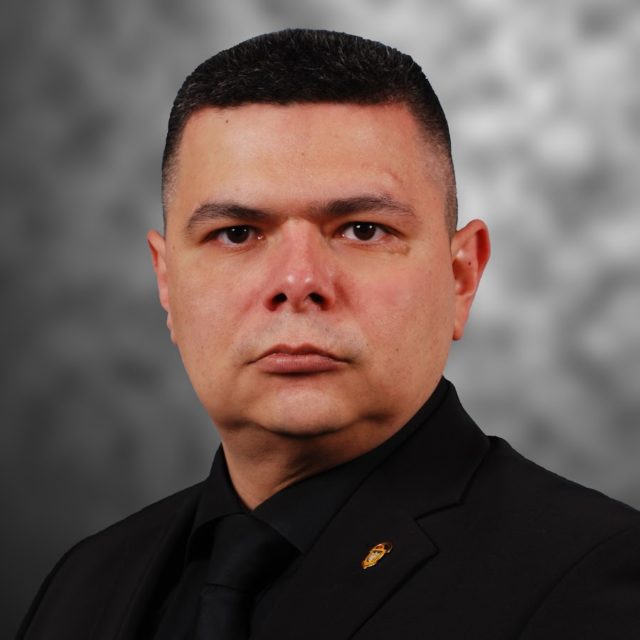
Francisco M. Gonzalez-LongattFrancisco M. Gonzalez-LongattFrancisco M. Gonzalez-Longatt is currently a full professor in electrical power engineering and Founder and leader of the DIgEnSys-Lab (Digital Energy Systems Laboratory) at the Department of Electrical Engineering, Information Technology and Cybernetics, University of South-Eastern Norway, Norway. He is a former Lecturer in Electrical Power System at Loughborough University (2013-2019), UK and Senior Lecturer in Electrical Engineering at Coventry University, UK (2011-2013). He was with the School of Electrical and Electronic Engineering, The University of Manchester as a post-doctoral researcher (2009-2011); and formerly was a former associate professor on Electrical and Chair of Engineering Department of Universidad Nacional Politécnico de la Fuerza Armada Nacional (UNEFA), Venezuela, Venezuela (1995-2009). He is Vice-President of the Venezuelan Wind Energy Association.
|
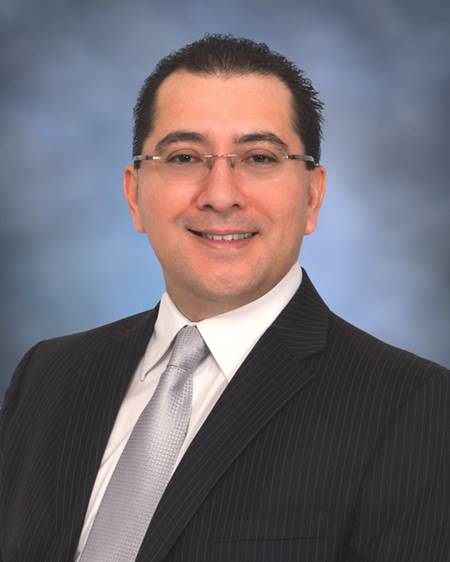
Julio Romero AgüeroJulio Romero AgüeroDr. Julio Romero Agüero is Vice President, Strategy & Business Innovation at Quanta Technology. He has 27 years of experience, he provides leadership to Quanta Technology in the areas of technology and business strategy, innovation, grid modernization, distribution systems planning, reliability, resiliency, and integration of distributed energy resources and emerging technologies. He has developed solutions in these areas for electric utilities and regulatory boards in the USA, Canada, Latin America, the Caribbean and Asia. He is a Senior Member of the Institute of Electrical and Electronics Engineers (IEEE), Distinguished Lecturer of the IEEE Power and Energy Society (PES), and currently serves as Vice President, Membership & Image in the IEEE PES Governing Board. He served as Chair of the 2020 and 2021 IEEE PES Innovative Smart Grid Technologies Conference – North America (ISGT – NA), Chair of the IEEE Distribution Subcommittee, Chair of the IEEE Working Group on Distributed Resources Integration, Editor of IEEE Transactions on Power Delivery, and Editor of IEEE Transactions on Smart Grid. He is a and an Adjunct Professor at University of North Carolina at Charlotte.
|
- Claudio Cañizares, University of Waterloo, Canada
Keynote: Energy storage systems (FACE-TO-FACE)
Thursday 08/09 – 11:10 hs. Eloy Camus – Civic Center - Francisco M. Gonzalez-Longatt, University of Exeter, UK
Keynote: Ultra-high fidelity digital real-time simulation as an enabler of achieving carbon neutrality (FACE-TO-FACE)
Wednesday 07/09 – 12:00 hs. Eloy Camus – Civic Center - Julio Romero Agüero, Quanta Technology, USA
Keynote: Grid modernization and smart distribution systems (FACE-TO-FACE)
Thursday 08/09 – 09:00 hs. Eloy Camus – Civic Center
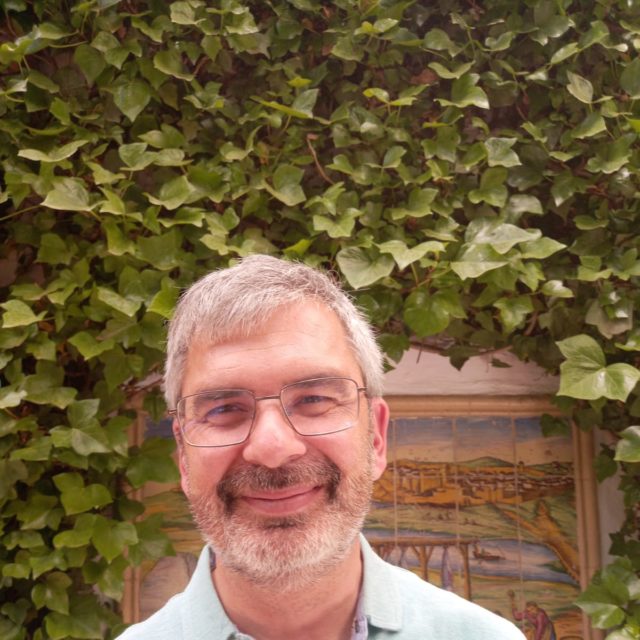
Jesús Manuel Riquelme SantosHis main line of research is in the area of “Electric Power Systems”, mainly prediction, planning, and electricity market. Within this field, he was part of one of the most relevant research groups at the national level and teaches the only interuniversity doctorate course in electrical energy systems at the national level. During these almost 25 years of scientific work, he directed 6 doctoral theses. In addition, he was a participant and director of more than 43 research projects ranging from projects of the National plan to projects financed by the CDTI in collaboration with different companies in the sector. In the execution of these projects, contributions have been made in 60 indexed journals, 7 non-indexed journals, 4 international book chapters, 3 teaching books, and 57 congresses. Finally, it is part of different national network associations (FUTURED, REOLTEC, etc.) and international committees, either of congresses such as PSCC or as members of international committees. It is also part of the DERlab, the European Distributed Energy Resources Laboratories (DERlab), and the Ibero-American Network for the Development and Integration of Small Wind Generators (MICRO-EOLO). On the other hand, it has participated in contracts with companies, far exceeding €1M. It is worth noting, for example, the European Market Simulator (GEMS) project was developed under its supervision and marketed by ISOTROL (https://www.isotrol.com/gestion-energia-mercados-mayoristas/). Other projects that have given rise to commercial software are CECOVEL and the Secondary Market Simulator marketed by ISOTROL and acquired by ENDESA. Lastly, he is a founding partner of the technology-based company INGECTUS (https://ingelectus.com/). Dr. Riquelme was Secretary and Director of the Department of Electrical Engineering at the University of Seville. In addition, since 2005 he has been the director of the Master’s Degree in the Electric Power System and since 2018 Coordinator of the Thematic Network P717RT0148-Ibero-American Network for the Development and Integration of Small Wind Generators. |
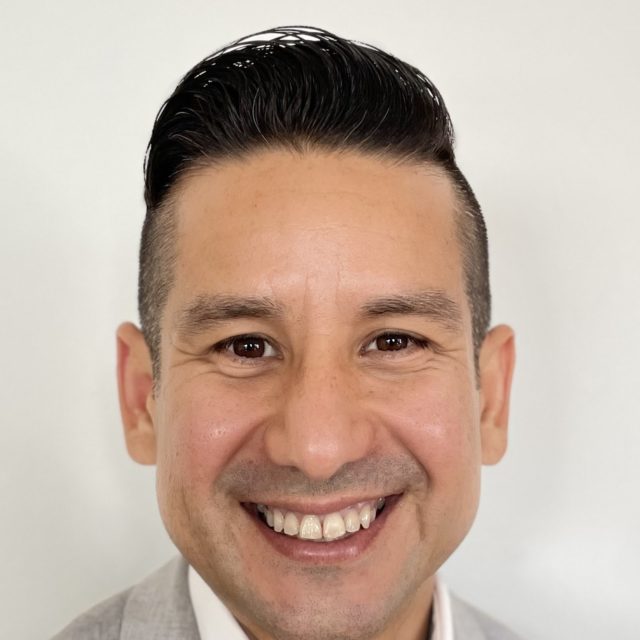
Luis “Nando” OchoaLuis Nando Ochoa is a Professor of Smart Grids and Power Systems at The University of Melbourne, Australia. He is an IEEE PES Distinguished Lecturer, an Editorial Board Member of the IEEE Power and Energy Magazine, and an IEEE Senior Member. Previously, from 2011 to 2021, he was full and part-time with The University of Manchester, UK. From 2007 to 2010 he was a Research Fellow in Energy Systems at the University of Edinburgh, UK. In 2010, he also undertook an industrial secondment with the Edinburgh-based company Psymetrix Ltd (part of GE). He holds a Bachelor’s degree in Mechanical and Electrical Engineering received from UNI (Peru), and a Research MSc and a PhD in Electrical Power Engineering, both received from UNESP Ilha Solteira (Brazil). |
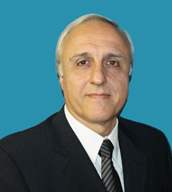
PhD. Enrique E. MombelloEnrique Esteban Mombello (M’95–SM’00) received the B.S. degree in electrical engineering and the Ph.D. degree in electrical engineering from Universidad Nacional de San Juan, San Juan, Argentina, in 1982 and 1998, respectively. He carried out research activities from1989 to 1991 at the High Voltage Institute of RWTH, Aachen, Germany. He is currently a Senior Researcher at the National Council for Scientific and Technical Research (CONICET), Buenos Aires, Argentina, and a Professor at the Institute of Electric Energy, National University of San Juan – CONICET, San Juan, Argentina. Since 2016 he is a member of the CIGRE JWG A2 / C4.52 Group "High-frequency transformer and reactor models for network studies", and since 2019 of the CIGRE JWG A2.63 Group "Transformer impulse testing". He has more than 70 publications in international journals and conference presentations. He has more than 30 years of experience in undergraduate and postgraduate research and teaching projects. His main research interests are high-frequency transformer model development, power transformer design and diagnostics, asset management, transformer life management, electromagnetic transients in power systems, and low frequency electromagnetic fields. |
- Jesús Manuel Riquelme Santos, Sevilla University, Spain
Keynote: Applications of prediction techniques in electrical systems with distributed resources: Need to develop assembler (FACE-TO-FACE)
Thursday 08/09 – 09:50 hs. Eloy Camus – Civic Center - Luis “Nando” Ochoa, University of Melbourne, Australia
Keynote: The future of hosting capacity in distribution and the use of soft limits (FACE-TO-FACE)
Wednesday 07/09 – 11:10 hs. Eloy Camus – Civic Center - Enrique E. Mombello, National University of San Juan, Argentina
Keynote: Modeling of High-Frequency Power Transformers: Challenges and Progress in an Environment of International Cooperation (FACE-TO-FACE)
Thursday 08/09 – 12:20 hs. Eloy Camus – Civic Center
Signal Processing
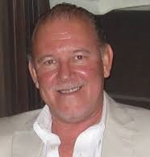
PhD. Ricardo Armentano FeijooRicardo L. Armentano has an outstanding trajectory in the cardiovascular engineering field–both in the theoretical principles and in the application to clinics – justified through his two Ph.D one in Physiological Sciences at the University of Buenos Aires (1994) and the other one in Physics Sciences (Biomechanics) at the University of Paris (1999) as well as his two post Ph.D studies, one in the Department of Physiology of the College of Medicine at the University of the Republic of Uruguay with the Professor Ph.D Ricardo Vellutti as scholar of the Fondo Clemente Estable CONICYT in the Quantitative Physiology area (2002-2003) and the other through a scholarship (bourse senior the La Ville de Paris) to develop Predictive Models of Cardiovascular Risk under the direction of professor Ph.D Alain Simon at the Hôpital Européen Georges Pompidou and the University of Paris V Descartes (2008-2009). His areas of specialization are Biomechanics and Vascular Hemodynamics (Laboratoire de Biorhéologie et d’Hydrodynamique Physico Chimique, CNRS, Université Denis Diderot. Paris VII. France) and Data Science, Signal Processing and Biological Systems Modeling INSERM Unité de Recherches Biomathématiques et Bioestatistiques, Université Denis Diderot. Paris VII. France) in this theme he was personal adviser of Ph.D Rene Favaloro (1992-1999). He created a new line of thought in the biomedical engineering which has consolidated him as leader in the field in Latin America. He devoted to model cardiovascular hemodynamics in healthy subjects and in many types of cardio metabolic illnesses. The technological developments derived from his Ph.D thesis works have given place to prestigious methods of cardiovascular diagnosis which are used in centers of vascular exploration in Latin America as well as at the European Hospital George Pompidou, Paris where he carried out his second post Ph.D studies. |
- Ricardo Armentano Feijoo, National Technological University, Regional Faculty of Buenos Aires
Keynote: Complementing Human and Artificial Intelligence to understand the mechanisms of nature (placed at the service of man and that man has not yet fully placed at his service)
Friday 09/09 – 09:40 hs. Classroom 1 – IEE
Software Engineering and Quality Software

Ing. Silvana ColasurdoManager at Penta Security Solutions. Information Systems Engineering at UTN. MBA UCEMA. |
- Silvana Colasurdo, Manager at Penta Security Solutions
Keynote: Software quality beyond testing
Thursday 08/09 – 11:10 hs. Classroom 2 – IEE
Videogames and Gamification
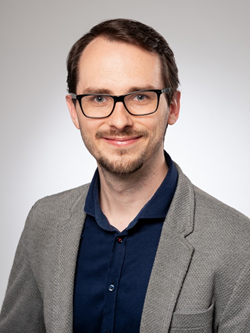
PhD. Alexander DockhornAlexander Dockhorn is Junior professor at the Institute for Information Processing of the Gottfried Wilhelm Leibniz University Hannover (LUH). Following his dissertation at the Otto-von-Guericke University of Magdeburg (OVGU), he worked at the Queen Mary University of London(QMUL) and later came back to the OVGU. During this time, he studied artificial intelligence in general strategy games and began working on abstraction methods to facilitate more efficient search strategies in complex applications. His current research interests include model-based decision-making, transfer learning, and explainable machine learning. He is an active member of the Institute of Electrical and Electronics Engineers (IEEE), for which he serves as chair of the IEEE CIS Games Technical Committee and the Summer School Subcommittee. |
- Alexander Dockhorn, Gottfried Wilhelm Leibniz University Hannover, Germany
Keynote: Playing Games to Learn – From Specialist to Generalist AI
Friday 09/09 – 09:40 hs. Multimedia Classroom – Electromechanical
